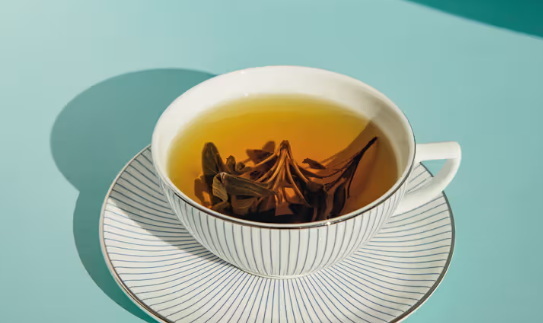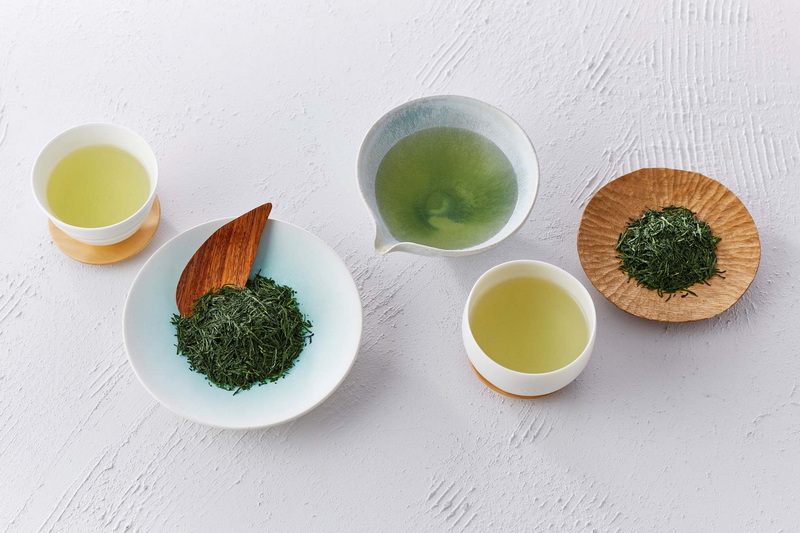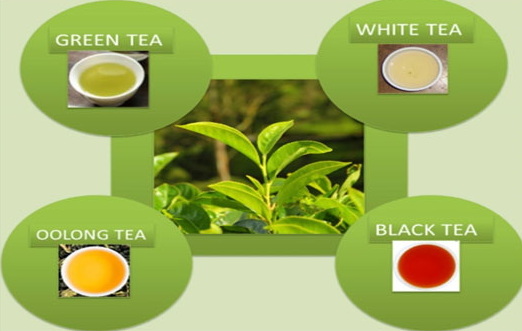Content Menu
● Introduction to Green Tea and L-Theanine
>> L-Theanine Content in Green Tea
● Impact of Green Tea on Blood Pressure
>> Meta-Analyses on Green Tea and Blood Pressure
>>> Mechanisms Behind Blood Pressure Reduction
>> L-Theanine's Specific Effects on Blood Pressure
>> Green Tea vs. Caffeine
● Benefits of Green Tea for Cardiovascular Health
● Additional Health Benefits of Green Tea
● Integrating Green Tea into Your Diet
● Potential Interactions and Precautions
● Conclusion
● FAQs
>> 1. How Does L-Theanine Affect Blood Pressure?
>> 2. Is Green Tea Safe for People with High Blood Pressure?
>> 3. How Much L-Theanine Should I Take for Blood Pressure Benefits?
>> 4. Can Green Tea Replace Medication for High Blood Pressure?
>> 5. Are There Any Side Effects of Consuming High Concentrations of L-Theanine?
● Citations:
Green tea, particularly its L-theanine content, has been extensively studied for its potential health benefits, including its impact on blood pressure. L-theanine, an amino acid found in green tea, is known for its calming effects and ability to reduce stress and anxiety levels. This article delves into the effects of green tea L-theanine on blood pressure, exploring both the scientific evidence and the mechanisms behind these effects.

Introduction to Green Tea and L-Theanine
Green tea, derived from the leaves of Camellia sinensis, is renowned for its high antioxidant content and various health benefits. Among its active compounds, L-theanine is particularly notable for its role in promoting relaxation and reducing stress. L-theanine is known to block the binding of L-glutamic acid to glutamate receptors in the brain, leading to anti-stress effects by inhibiting cortical neuron excitation.
L-Theanine Content in Green Tea
Green tea typically contains about 1-3% L-theanine by weight. However, supplements often have a higher concentration, such as 60% L-theanine, which can provide a more potent effect compared to consuming green tea alone.
Impact of Green Tea on Blood Pressure
Numerous studies have investigated the effects of green tea on blood pressure. These studies generally indicate that green tea can help lower blood pressure, particularly in individuals with hypertension or prehypertension.
Meta-Analyses on Green Tea and Blood Pressure
A meta-analysis published in 2014 found that green tea consumption significantly reduced systolic blood pressure (SBP) by approximately 1.98 mmHg and diastolic blood pressure (DBP) by about 1.92 mmHg. Another meta-analysis focusing on healthy individuals reported a more substantial reduction in SBP by 2.99 mmHg and DBP by 0.95 mmHg.
Mechanisms Behind Blood Pressure Reduction
The mechanisms by which green tea affects blood pressure are multifaceted:
- Vascular Tone Regulation: Green tea can maintain vascular tone by balancing vasoconstricting substances like angiotensin II and vasodilating substances such as nitric oxide (NO).
- Antioxidant Effects: Green tea reduces oxidative stress, which is beneficial for cardiovascular health.
- L-Theanine's Role: L-theanine helps reduce stress-induced blood pressure increases by promoting relaxation and reducing anxiety levels.
L-Theanine's Specific Effects on Blood Pressure
L-theanine has been shown to inhibit blood pressure increases under stress conditions. Studies indicate that L-theanine can significantly reduce anxiety and stress-related blood pressure spikes, making it beneficial for individuals experiencing stress-induced hypertension.
Green Tea vs. Caffeine
While green tea contains caffeine, which can increase blood pressure, the L-theanine content helps mitigate this effect. L-theanine promotes relaxation and reduces the stimulatory effects of caffeine, making green tea a safer choice for those concerned about blood pressure.

Benefits of Green Tea for Cardiovascular Health
Beyond its effects on blood pressure, green tea is associated with several cardiovascular benefits:
- Reduced Risk of Cardiovascular Diseases: Regular consumption of green tea has been linked to a lower risk of cardiovascular diseases, partly due to its blood pressure-lowering effects.
- Antioxidant Properties: Green tea's high antioxidant content helps protect against oxidative stress, which is a risk factor for cardiovascular diseases.
Additional Health Benefits of Green Tea
In addition to its cardiovascular benefits, green tea offers several other health advantages:
- Weight Management: Green tea has been shown to aid in weight loss by increasing metabolism and fat burning.
- Cancer Prevention: The antioxidants in green tea may help reduce the risk of certain cancers by protecting cells from damage.
- Improved Brain Function: L-theanine in green tea can enhance focus and concentration, making it beneficial for cognitive function.
Integrating Green Tea into Your Diet
To maximize the benefits of green tea, consider the following tips:
- Brewing Method: Use hot water and let the tea steep for 1-3 minutes to release the optimal amount of L-theanine and antioxidants.
- Frequency of Consumption: Aim to drink green tea regularly, ideally 2-3 cups per day.
- Combination with Other Foods: Pair green tea with a balanced diet rich in fruits, vegetables, and whole grains for enhanced health benefits.
Potential Interactions and Precautions
While green tea is generally safe, it can interact with certain medications or exacerbate underlying health conditions:
- Medication Interactions: Green tea may interact with blood thinners and certain medications for diabetes and high blood pressure. Consult a healthcare provider if you are taking any medications.
- Caffeine Sensitivity: Be mindful of caffeine intake, especially if you are sensitive to its effects.
Conclusion
In conclusion, green tea L-theanine can have a positive impact on blood pressure by reducing stress-induced spikes and promoting overall cardiovascular health. While the effects may vary depending on the individual and the specific formulation of green tea or L-theanine supplements, the available evidence supports its potential benefits for blood pressure management.

FAQs
1. How Does L-Theanine Affect Blood Pressure?
L-theanine can help reduce stress-induced blood pressure increases by promoting relaxation and reducing anxiety levels. It is particularly effective in individuals who experience high blood pressure under stress conditions.
2. Is Green Tea Safe for People with High Blood Pressure?
Yes, green tea is generally safe for individuals with high blood pressure. In fact, it may help lower blood pressure due to its L-theanine and antioxidant content. However, it's advisable to consult a healthcare provider before making significant changes to your diet.
3. How Much L-Theanine Should I Take for Blood Pressure Benefits?
Typical doses of L-theanine for stress relief and potential blood pressure benefits range from 200 to 400 mg per day. However, it's essential to consult with a healthcare professional to determine the appropriate dosage for your specific needs.
4. Can Green Tea Replace Medication for High Blood Pressure?
No, green tea should not replace prescribed medication for high blood pressure. While it may offer complementary benefits, it is not a substitute for medical treatment. Always consult with a healthcare provider before altering your treatment plan.
5. Are There Any Side Effects of Consuming High Concentrations of L-Theanine?
L-theanine is generally well-tolerated, but high doses may cause drowsiness or interact with certain medications. It's crucial to follow recommended dosages and consult with a healthcare provider if you have concerns.
Citations:
[1] https://pmc.ncbi.nlm.nih.gov/articles/PMC4150247/
[2] https://pubmed.ncbi.nlm.nih.gov/36689359/
[3] https://moyamatcha.co.uk/how-does-green-tea-affect-blood-pressure/
[4] https://pubmed.ncbi.nlm.nih.gov/23107346/
[5] https://www.nature.com/articles/s41598-024-59383-y
[6] https://pubmed.ncbi.nlm.nih.gov/31758301/
[7] https://pmc.ncbi.nlm.nih.gov/articles/PMC4480845/
[8] https://pmc.ncbi.nlm.nih.gov/articles/PMC3518171/






























